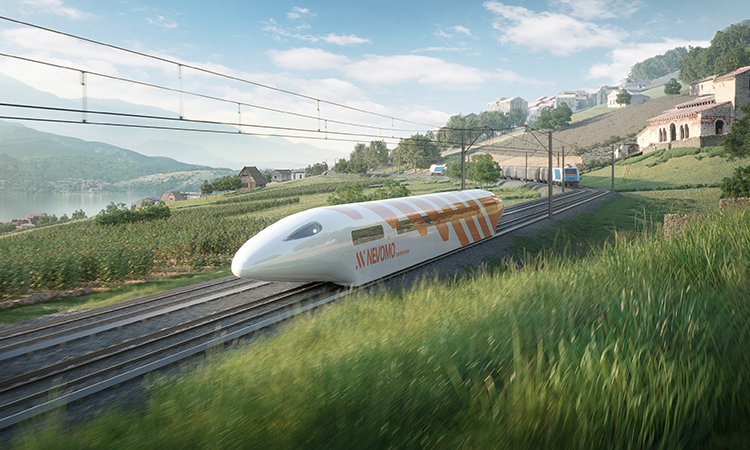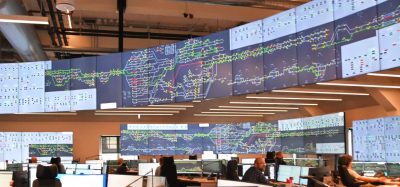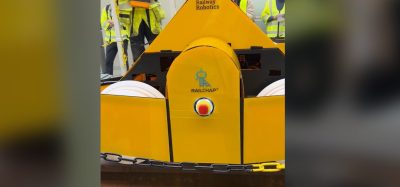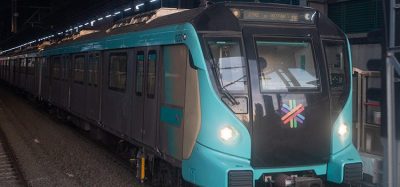Magrail technology to undergo feasibility testing in Italy
Posted: 23 June 2021 | Global Railway Review | No comments yet
Rete Ferroviaria Italiana and Nevomo will apply for EU funding to conduct the first full-scale magrail system pilot on a RFI test track in Bologna San Donato.


Credit: Nevomo
Rete Ferroviaria Italiana (RFI) – the Ferrovie dello Stato Italiane Group (FS) company responsible for managing the national railway infrastructure – and Nevomo – the Polish-Swiss technology company – have signed a Memorandum of Understanding (MoU) to verify the feasibility of superposing magrail technology on existing railway infrastructures.
The year-long collaborative agreement is focused on knowledge sharing and analysing the Italian railway network to assess the technical and economic feasibility of implementing magrail technology on selected routes. The agreement also mentions technology acceleration, aimed at integrating it with the railway system.
As part of this cooperation, they will apply for innovation funding from the European Union (EU) to conduct the first full-scale magrail system pilot on a test track in Bologna San Donato, which is owned by RFI. This will be the last stage of testing, which is expected to trigger the conformity assessment procedures needed to implement the magrail technology commercially.
It will be a major step towards bringing this innovative technology, which is still in its development phase, to the European railway market. Thus, Italy has taken another step towards becoming a pioneer of advanced and innovative transport systems, focusing on related infrastructural needs.
Magrail is expected to become a new high-speed transport system superposed on, and integrated with, existing railway corridors, enabling conventional and high-speed railway transport to be upgraded. It will enable the introduction of a new mode of propulsion with linear motors and a new interface between newly designed vehicles and the infrastructure, based on frictionless magnetic levitation.
From a technical point of view, it will allow for interchangeable operations of conventional railway rolling stock, as well as new, faster, magnetic-levitating vehicles on the same line. The latter vehicles will be up to 75 per cent faster than the former vehicles on the same route alignment, without the need to build new infrastructures. The system is expected to improve the performance and efficiency of existing railway corridors at moderate capital expenditure levels and with lower operational costs, avoiding all heavy civil works and related investment.
“The magrail technology that we are developing allows us to implement sustainable mobility by transforming the transportation landscape into an efficient and emission-free system. The preliminary feasibility study of magrail technology, conducted in cooperation with our partner IDOM, shows that the benefits of implementing magrail technology will be significant – both in economic and social terms,” says Przemek Paczek, CEO & Co-Founder of Nevomo. “We are extremely happy that RFI, one of the European leaders in adopting advanced technological railway solutions, has placed its trust in us. Together, we have an opportunity to revolutionise rail transport.”
Related topics
High-Speed Rail, Infrastructure Developments, Rolling Stock Orders/Developments, Track Systems, Track/Infrastructure Maintenance & Engineering
Related organisations
European Union (EU), Ferrovie dello Stato Italiane (FS), Nevomo, Rete Ferroviaria Italiana (RFI)







